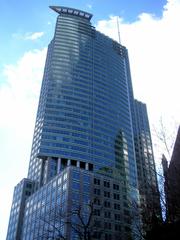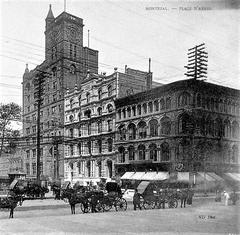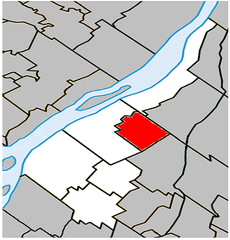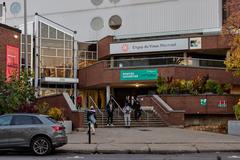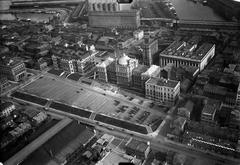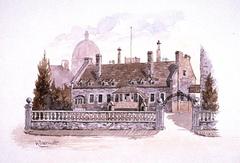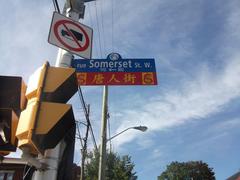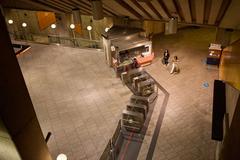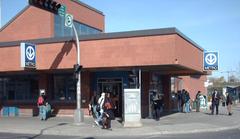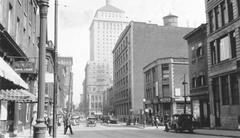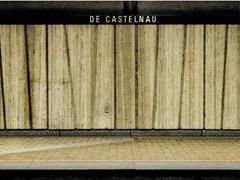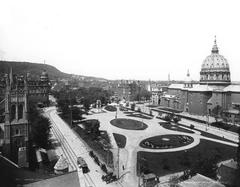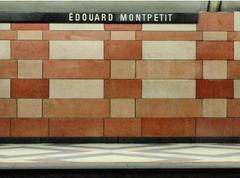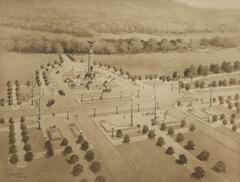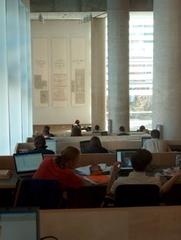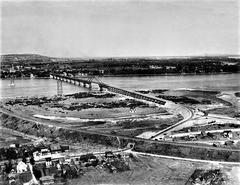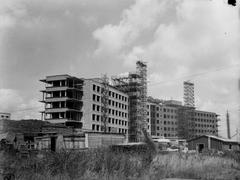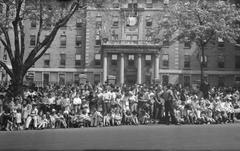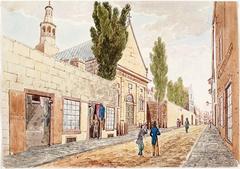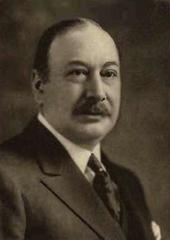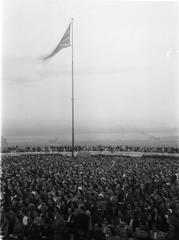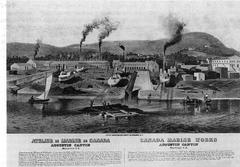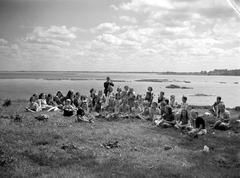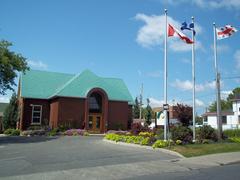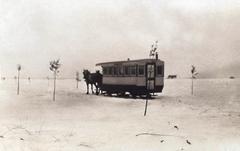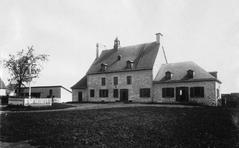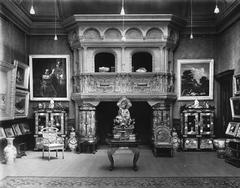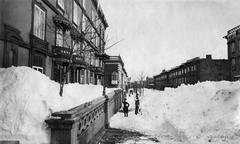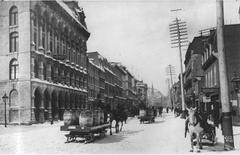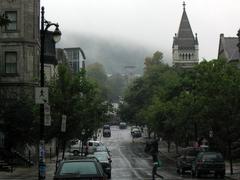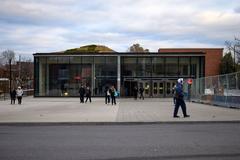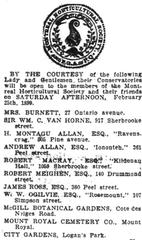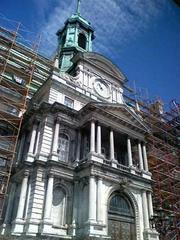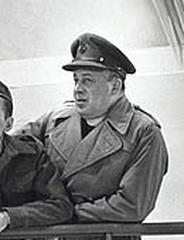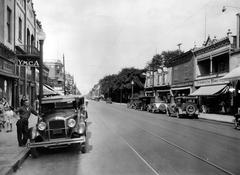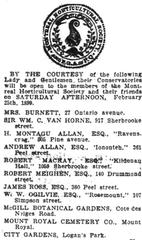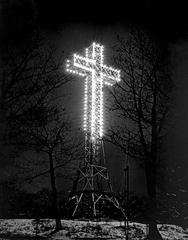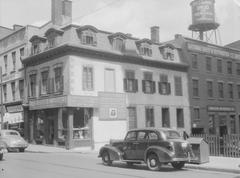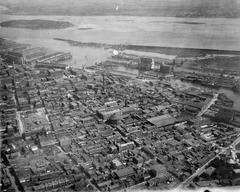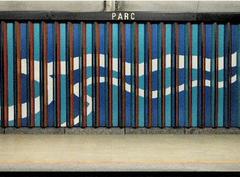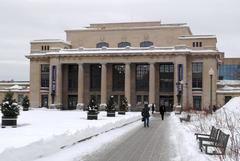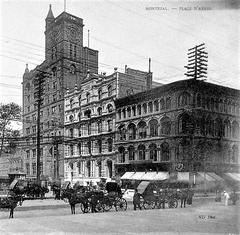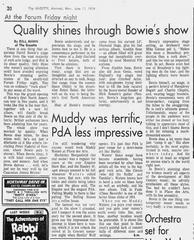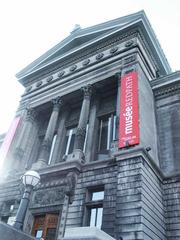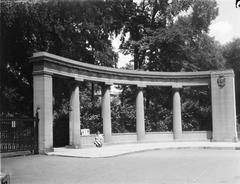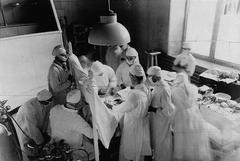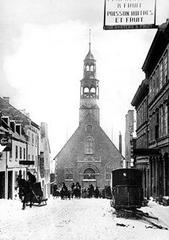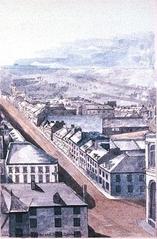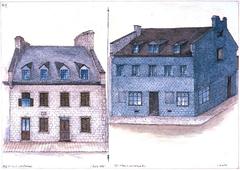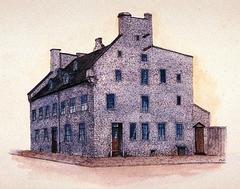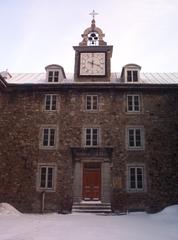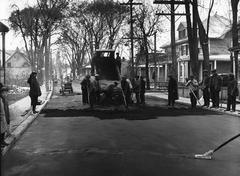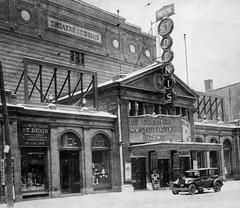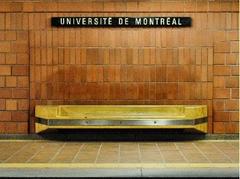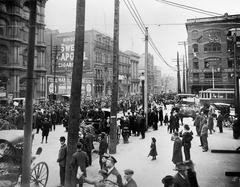
Philippe Pinel Institute Montreal: Visiting Hours, Tickets, and Historical Significance
Date: 03/07/2025
Introduction
The Institut national de psychiatrie légale Philippe-Pinel—commonly known as the Philippe Pinel Institute—holds a unique place in Montreal and Canada for its pioneering work at the intersection of forensic psychiatry and the justice system. Established in 1964 and inaugurated in 1970, the Institute was named in honor of Philippe Pinel, the renowned French physician whose humane approach to mental illness transformed psychiatric care. Today, the Institute is recognized for its innovations in mental health care, research, and education, particularly for individuals involved with the justice system due to mental disorders (Institut Philippe-Pinel - Historique; Wikipedia; Erudit).
As a specialized hospital affiliated with Université de Montréal, the Pinel Institute provides advanced psychiatric assessment, treatment, and rehabilitation. It is also a hub for forensic psychiatry research and academic training. While not a typical tourist attraction, the Institute offers educational visits and tours by appointment, making it a point of interest for professionals, students, and those seeking to understand Montreal’s mental health history and its connection to the justice system (pinel.qc.ca; 211qc.ca).
This guide delivers a comprehensive overview of the Institute’s history, visiting protocols, accessibility, ethical considerations, and nearby attractions—helping interested parties plan a respectful and enriching visit.
Table of Contents
- Historical Background and Evolution
- Founding and Naming
- Milestones in Academic and Clinical Integration
- Visiting Information
- Location, Directions, and Parking
- Ethical Guidelines and Visitor Protocols
- Nearby Montreal Attractions
- Academic and Research Activities
- Community Engagement and Events
- Frequently Asked Questions (FAQ)
- Additional Resources
1. Historical Background and Evolution
Early Psychiatric Care in Quebec
Before the Pinel Institute’s establishment, individuals with severe mental illnesses and criminal backgrounds were treated at the Asile des détenus aliénés de Bordeaux, founded in 1927. By the late 1950s, overcrowding and inadequate facilities highlighted the need for a specialized forensic psychiatric hospital (Institut Philippe-Pinel - Historique; Wikipedia).
The Road to Modern Forensic Psychiatry
In 1962, the Quebec Ministry of Health convened a committee to develop a modern psychiatric facility for high-risk patients. Their work culminated in the founding of the Institut Philippe-Pinel de Montréal in 1964, with the hospital opening its doors in 1970.
2. Founding and Naming
The Institute is named for Philippe Pinel (1745–1826), a French physician celebrated for his advocacy of humane and scientific treatment of psychiatric patients. From its origin, the Institute has carried forward Pinel’s legacy of compassion and innovation (Ecampus Ontario).
3. Milestones in Academic and Clinical Integration
- Affiliated with Université de Montréal since 1975, Pinel serves as a teaching hospital for forensic psychiatry.
- Innovations include the creation of psycholegal expertise units (1972), mixed-gender treatment units (1996), and specialty clinics such as the Dangerosity Clinic (1999).
- Embraced technological advances, like establishing a cyberpsychology lab (2007) and integrating virtual reality into forensic psychiatric care (2013) (Institut Philippe-Pinel - Historique).
4. Visiting Information
Hours, Tickets, and Reservations
- Visits are by appointment only. The Institute is not a public museum; walk-ins are not permitted.
- Admission is free, but guided tours, primarily for educational or professional groups, must be reserved in advance.
- To inquire or schedule a visit, contact visitor services through the official website or by phone at 514 648-8461.
Accessibility
- The facility is wheelchair accessible and provides accommodations for visitors with disabilities.
- Public transit options and on-site parking are available (see below for details).
Tour Experiences
Guided tours provide insights into the Institute’s history, architecture, and clinical work. Due to the sensitive nature of the facility, photography and recordings are strictly limited and only permitted in designated areas, if at all.
5. Location, Directions, and Parking
Address:
10905, boulevard Henri-Bourassa Est, Montréal, QC H1C 1H1
Telephone: 514 648-8461
(pinel.qc.ca - Planifiez votre visite)
Public Transit
- Accessible via STM bus lines 183 (Gouin Est) and 194 (Rivière-des-Prairies).
- For full transit info, see STM.
Parking
- Visitors can use free on-site parking during approved visits (pinel.qc.ca - Événements).
6. Ethical Guidelines and Visitor Protocols
- Arrive 20 minutes prior to your scheduled tour.
- Bring only essential items; all belongings are subject to inspection.
- No photography or recording devices allowed except where permitted.
- Respect confidentiality—no interaction with patients unless explicitly authorized.
- Follow all instructions from staff and security.
- Dress appropriately and avoid bringing gifts or personal items for patients.
- COVID-19 or other health protocols may apply; check in advance.
7. Nearby Montreal Attractions
Enhance your visit by exploring:
- Parc-nature de la Pointe-aux-Prairies: Enjoy nature trails and scenic views.
- Maisonneuve Park: Offers gardens and recreational areas.
- Old Montreal: Historic district with museums and cobblestone streets.
- Montreal Botanical Garden: One of the world’s largest botanical gardens.
- For more, see Montreal Tourism.
8. Academic and Research Activities
The Institute is a national leader in forensic psychiatric research and education:
- Provides clinical placements for psychiatric residents and students (Université de Montréal - PubMed).
- Operates the Centre de documentation Jacques-Talbot, a specialized library, and the Laboratoire d’immersion forensique (LIF) for virtual reality research (pinel.qc.ca - Événements).
- Hosts national and international conferences and publishes extensively in the field.
9. Community Engagement and Events
- Career Days: Annual events to introduce career paths in forensic psychiatry.
- Marathon Beneva de Montréal: Supports mental health and social reintegration initiatives.
These activities foster public understanding and engagement around mental health and forensic issues.
10. Frequently Asked Questions (FAQ)
Q: Can anyone visit the Philippe Pinel Institute?
A: Visits are restricted to approved educational or professional groups. General public tours are not available.
Q: How do I book a visit?
A: Schedule in advance via the official visitor page or call 514 648-8461.
Q: Is there a fee?
A: Admission is free, but all visits must be pre-approved.
Q: Is the Institute accessible to people with disabilities?
A: Yes; inform staff of any specific needs ahead of your visit.
Q: Can I take photos?
A: No, except in specific areas with explicit permission.
Q: Are children permitted?
A: Generally, visitors under 14 are not allowed, due to the facility’s secure and sensitive environment.
11. Additional Resources
- Official Institut Philippe-Pinel Website
- Plan Your Visit
- Montreal Tourism
- 211 Quebec Community Information
- Audiala App for Guided Tours
Further reading and references:
- Institut Philippe-Pinel - Historique
- Wikipedia - Institut Philippe-Pinel
- Erudit - Forensic Psychiatry at Pinel
- JAAPL - Pinel Institute
- STM - Montreal Transit
Conclusion
The Philippe Pinel Institute is a landmark of compassionate forensic psychiatry, academic achievement, and patient-centered care in Montreal. While not open for general tourism, the Institute welcomes educational and professional visitors by appointment, offering a meaningful look into the intersection of mental health and justice. Observing all protocols and ethical guidelines is essential when visiting.
For more information, the latest updates, and guided resources, visit the official Pinel Institute website or consider using the Audiala app for enriched local experiences.



